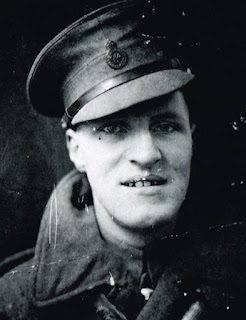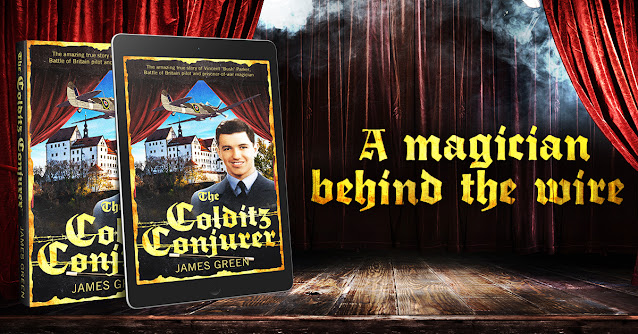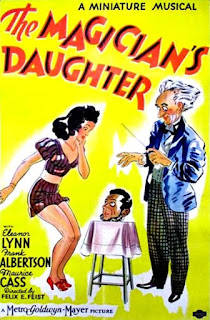Tommy Cooper: comedy magic legend at war
"I went to buy some camouflage trousers the other day but I couldn't find any."
This blog article, published on 19th March 2021, celebrates the 100th anniversary of the birth of British comedy magic legend, Tommy Cooper. As you might expect, I'm going to focus on Tommy's wartime experiences, including the story of how he picked up his trademark fez.
Early years
Thomas Frederick Cooper (1921-1984) was born in Caerphilly, Wales. His family moved to Exeter, Devon when he was three. At the age of eight, an aunt bought Tommy a magic set and he would spend hours perfecting all the tricks. After finishing school, Cooper left the family home to become an apprentice shipwright at Southampton.
"This country is at war with Germany"
On 3 September 1939, two days after German forces invaded Poland, Britain declared war on Germany. World War Two had begun.
Despite being in a reserved occupation, Cooper managed to enlist into the military to serve his country. In 1940 ("or twenty to eight..."), aged 19, he joined the Horse Guards.
He was following in his father's footsteps, as Thomas H. Cooper had fought on the Western Front in World War One, later assigned as a recruiting sergeant, before becoming a coal miner.
The Royal Regiment of Horse Guards (known as 'The Blues') was a cavalry regiment of the British Army, part of the Household Cavalry. It was based in Windsor, near London. When war was declared the regiment joined with the Life Guards to form the Household Cavalry Composite Regiment and the Household Cavalry Training Regiment.
Training to be a soldier
On joining the British Army, Cooper - now with the military rank of Trooper (a cavalry equivalent of private) - was sent to Pirbright Camp in Surrey to train to be a cavalry soldier.
He would later tell a joke about his experience learning to ride horses:
"I was in the Horse Guards and I remember been stationed once at Pirbright. We were under canvas. And then we used to get up and gallop over the mountains, up the other mountain and down. Over the waters. Through the fences. Gallop over the fields. Over the mountains again. And then straight back to camp ... And the next day I went out again and took a horse with me."
After passing out as a trained soldier, Cooper was initially based in London with the Training Regiment. He exercised the regiment's horses in Hyde Park and did sentry duty in Whitehall.
A mounted Lance Corporal of the Household Cavalry Regiment
wearing a gas mark at Windsor (1939)
John Fisher, Tommy’s biographer, recorded a story Cooper told him about his time on ceremonial duties:
Cooper had developed a flair for avoiding the more onerous duties and came close to a court martial on more than one occasion. One morning, in the early hours, he was on sentry duty and dozed off standing up by the side of the sentry box. Within seconds the sergeant came round the corner with the orderly officer.
Cooper takes up the story: “And all of a sudden I open my eyes just a little bit and I can see them standing there. So, I’ve got to think of something now or otherwise I’m going to end up inside [i.e military jail]. So, I wait for a second and I open my eyes fully and I say, 'Amen!' It did the trick and nothing was said.”
This story later became ‘a bit’ in his stage routine.
Tommys Cooper's 'The Guard' sketch
(Source: YouTube)
After several months of UK-based duties, Cooper was sent out to the Middle East to join his regiment.
Fighting in the Middle East
By the time Trooper Cooper completed military training, the regiment had been retitled as the 1st Household Cavalry Regiment. It had swapped its horses for armoured cars and small tanks and deployed from Windsor to Haifa in Palestine.
In April 1941, in one notable operation during the early party of the war, the regiment moved to Iraq to oppose Rashid Ali, who had seized power in Baghdad and was siding with the Axis Powers. Later the same year, the regiment fought against the Vichy French in Syria. In 1942, the regiment saw action in the First Battle of El Alamein and took part in the decisive Second Battle of El Alamein, where Rommel's forces were defeated by Montgomery's Eighth Army.
In his spare time, Cooper would entertain his fellow soldiers with impromptu tricks and comic routines. When opportunities allowed, he would take part in ad hoc concert party shows.
While the regiment was deployed in the Western Desert, somewhere near Suez, Egypt, Cooper was wounded by a gunshot to his right arm.
Learning the ropes
After recovering from his injury (but losing his A-1 medical grading), Cooper opted to sign-up with a Field Entertainment Unit (F.E.U.), instead of returning to his regiment (which wasn't involved in any more significant fighting until 1944). The F.E.U. was part of the War Office Central Pool of Artistes, otherwise known as known as ‘Stars in Battledress’ (SiB.). The SiB. was made up of serving soldiers, many of whom were entertainers before the war.
He passed an audition in Cairo and was accepted into the local F.E.U., which formed concert parties that toured military bases throughout Egypt and surrounding areas.
Joining the SiB. allowed Cooper, for the first time in his life, to focus solely on developing his act. And with multiple performances each day, he was (almost literally) learning under fire.
Troops enjoying field entertainment during WW2
Initially, he wasn't very good. “In fact, the boys used to dodge him,” recalled fellow magician Ken Brooke who ran entertainment for troops in the Cairo area.
Despite his best attempts at performing tricks properly, Cooper discovered he got more laughs when they didn’t work.
Gradually he started making mistakes deliberately. Over time, as he grew in confidence, the straight magic was dropped in favour of gags and clever patter framed around failed tricks. To keep the audience on their toes, Cooper threw in an occasional trick that worked when it was least expected.
Fellow soldier John Arnatt (author of 'Fighting for a Laugh'), later wrote, "His act then was the same as today – conjuring that goes wrong with all the gags in between; same laugh, same everything. He was a bastard to be with as an officer because he delighted in getting you up on the stage to help him out and then he would take the Mickey out of you terribly. He had the entire audience on his side and if you weren’t careful you came out of it looking none too dignified".
The fez story
Cooper's stage attire during those early days in the desert consisted of a cloak, scruffy shorts and socks down to his ankles, along with the word 'Hair' written across his chest. Given his 6' 4" height, he would have looked fairly absurd.
One night, while performing at the Y.M.C.A. at R.A.F. Heliopolis, near Cairo in Egypt, Cooper forgot a military-issue pith helmet that he needed for a sketch. Instead, he pinched the fez (or tarboosh) off the head of a passing waiter and popped it on his own. It got a big laugh, so he stuck with it. In so doing, he created a look that was to become one of the most iconic in British comedy.
A fez
Although he wasn't the first magician to wear one, Cooper - and comedy magic - will forever be associated with the fez.
Post-war - becoming a national icon
In 1946, after the end of the war and while waiting to be demobbed, Cooper - now Sergeant Cooper - joined Combined Services Entertainment. The C.S.E. replaced E.N.S.A, the Entertainments National Service Association, which was the British military's wartime forces entertainment organisation.
As a C.S.E. entertainer, Cooper travelled throughout the Middle East, entertaining war-weary troops who themselves were waiting to be demobilised. Maintaining morale during this immediate post-war period - when the soldiers just wanted to get home to their families - was a vital role.
During this time, Cooper met his future wife, Gwen (known by Tommy as 'Dove'), who was attached to the C.S.E. as a civilian entertainer.
After seven years of military service, Cooper was demobilised in 1947. Having developed a persona and act performing to forces in the Middle East, he decided to take up show business as a career. And, aren't we all grateful for that decision!
In March 1948, just a few months after turning professional, Cooper made his début on TV performing in the BBC talent show, 'New to You'. From this initial break, he steadily built his career. By the early fifties, he was doing top cabaret venues and major variety tours.
As for many post-war entertainers, the medium of TV propelled Cooper to national popularity. He had a very successful TV career, working for London Weekend Television from 1968 to 1972, and Thames Television from 1973 to 1980. As well as fronting his own sketch show, he also performed with other comedians such as Erik Sykes. He appeared on the ‘Ed Sullivan Show’ in America and numerous times on the 'Royal Variety' show, performing in front of royalty.
During his career, echoing his wartime past, Tommy developed a popular monologue called 'Cooper the Trooper'. In another war-related sketch, he played both a British brigadier and a German officer called Fritz, by wearing a unique split costume.
Assessing Cooper's success, one commentator said, "The comic material of Tommy Cooper was nothing special, what made him one of Britain’s favourite comedians was his intrinsically comic nature. He embodied great innocence and childlike qualities which made his failed jokes particularly funny. Comedians commend his ability to bring the house down with the thinnest of materials."
Tommy Cooper (1970s)
Sadly, on 15 April 1984, while performing his act on 'Live From Her Majesty's', a live variety TV show broadcasting to the nation, Tommy Cooper collapsed from a massive heart attack. Despite attempts to revive him, he died later in hospital.
And, "just like that", the world lost a comedy magic legend...
Tommy Cooper's 'The violin and painting' sketch
(Source: YouTube)
For further information on Tommy Cooper's life, I highly recommend John Fisher's 'Tommy Cooper - Always Leave Them Laughing' (2006).
Related article: "Don't be fright!": radio magician's catchphrase helps reassure the nation, a look at the life and wartime contribution of Sirdani, another fez-wearing comedy magician. Blog link.
Research supported by The Good Magic Award 2021 from The Good Thinking Society
*** AVAILABLE NOW ***
The Colditz Conjurer tells the amazing true story of Flight Lieutenant Vincent ‘Bush’ Parker, Battle of Britain pilot and prisoner-of-war magician.
Written by the Magic at War team, The Colditz Conjurer is a remarkable tale of perseverance, courage and cunning in the face of adversity. It features over 55 original photographs and maps. 126 pages.















Comments
Post a Comment